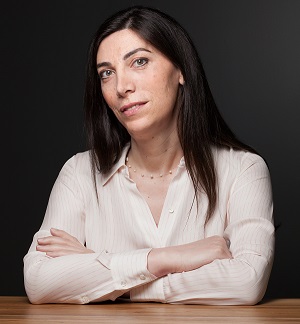The rapidly developing field of synthetic biology has the power to revolutionize many industries including chemicals, food, material science, molecular biology, pharmaceuticals, biotherapeutics, and many others. While numerous fields will and are benefiting from synthetic biology advancements, the medical and therapeutics sectors are arguably taking the lead in adopting synthetic biology tools and approaches.
As awe-inspiring as these advancements are, dramatic strides in our ability to quickly and cost-effectively read and write DNA were needed for these advancements. Twist Bioscience is unquestionably the leader in DNA synthesis. I had the opportunity to talk with Emily Leproust, CEO and founder of Twist Bioscience, to get her perspectives on some of the opportunities and challenges she sees as the application of synthetic biology grows for the discovery, development, and manufacturing of often life-saving therapeutics.
Are there challenges or bottlenecks within the synthetic biology stack?
Emily Leproust: Reading and writing DNA used to be large bottlenecks. When the first human genome was sequenced in the early 2000’s, it cost $3 billion, took thirteen years, and required participation from scientists from around the world. With enormous technology improvements, it now costs about $1,000 to sequence a human genome in a commercial lab. With our silicon-based DNA-synthesis platform, Twist Bioscience has created cost reductions and efficiency improvements for DNA writing. With quick access to highly affordable DNA production, developers can explore a lot more avenues and ultimately make more discoveries.
What therapeutic developments do you see possible in the near and longer terms?
Leproust: Synthetic biology will allow more precision medicines to be developed and utilized. For instance, there is not one type of breast cancer; there are many types of breast cancers, and we are moving towards being able to treat a patient’s specific type of cancer and gene mutations. Immunotherapies are the first examples of this. We will be able to use the actual immune response of a patient’s body and amplify it so that a patient will get treated with their own reengineered cells, as is happening with CAR-T therapies today.
Personalized medicines deliver a lot of improvements in efficacy and efficiency. Today we are probably happy with an oncology drug that is 60 percent effective. With truly personalized medicine, we will be able to achieve 95–99 percent effectiveness. We believe fatal diseases will become chronic conditions.
What challenges do you see as synthetic biology continues to enable the development of novel therapeutics?
Leproust: Biology is very complex; therefore, we need to take more shots on goal so that we can understand it and increasingly harness its power. To allow this to happen, we must continue to invest in research so that we can gain a greater understanding of biology as, in my view, biology is the most important technology for the twenty-first century. Last century was all about plastics, computers, software, and other innovations powered by quantum physics. The twenty-first century will be driven by biology, and it will have a massive impact on our economic output. The challenge is making sure we have a pipeline of educated workers who understand biology, so applications can be derived from it.
Do you see a role for synthetic biology in advancing small molecule pharmaceuticals?
Leproust: In organic chemistry there are a few things that are hard to do. For instance, making a carbon–carbon bond and making a chiral product are both difficult.
The amazing thing about enzymes is that they can enable carbon–carbon bonds. They can also generate chiral synthesis at high yield, in water, at room temperature. It’s magic if you can find the right enzyme for the right reaction. Cleaner, safer, and much more efficient reactions within API manufacturing processes will ultimately allow small molecule drugs to be stronger within the market.
Controlling the costs of personalized medicines is a significant challenge. What are your thoughts?
Leproust: As we scale, costs will come down—this is simply how technology adoption works. However, reducing the cost of therapeutics will take longer than reducing the cost of flat-screen television, for example and rightfully so. The therapeutics development community must contend with a lot of quality and compliance factors that other technologies simply do not face. The tools the synthetic biology sector is bringing to the table are reducing and will continue to reduce the costs of treatments.
Synthetic biology is scaling not only the technology tools needed but also the thought processes to figure out biological problems faster. Quick-DNA reading and writing, which we now have, are critical. Quick-DNA reading allows developers to come up with a hypothesis as to what is happening in the cell. DNA writing allows them to quickly and affordably test the validity of their hypothesis. This increasingly rapid hypothesis-testing process enables much quicker learning.
Emily Leproust, CEO and founder, Twist Bioscience – As an early pioneer in the high-throughput synthesis and sequencing of DNA, Dr. Leproust is disrupting the process of gene synthesis to enable the exponential growth of synthetic biology applications in multiple fields. She earned her Ph.D. in organic chemistry from the University of Houston and her M.Sc. in industrial chemistry from the Lyon School of Industrial Chemistry in France. www.twistbioscience.com

